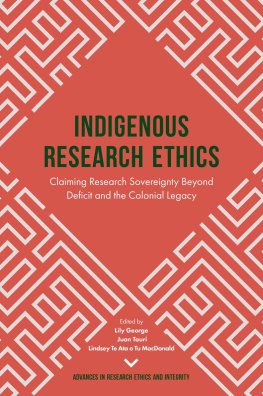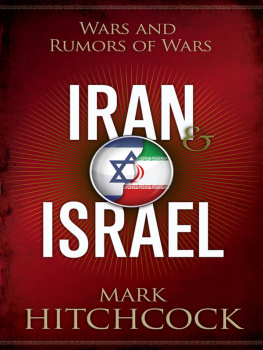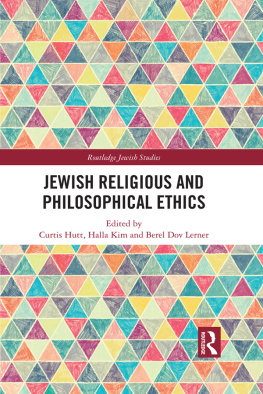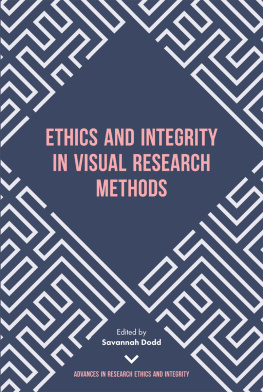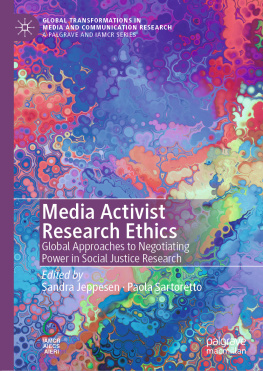Mark Israel 2015
This second edition first published 2015
First published 2006, reprinted in 2008, twice in 2009, 2010, 2011, 2012 and 2013
Apart from any fair dealing for the purposes of research or private study, or criticism or review, as permitted under the Copyright, Designs and Patents Act, 1988, this publication may be reproduced, stored or transmitted in any form, or by any means, only with the prior permission in writing of the publishers, or in the case of reprographic reproduction, in accordance with the terms of licences issued by the Copyright Licensing Agency. Enquiries concerning reproduction outside those terms should be sent to the publishers.
Library of Congress Control Number: 2014938160
British Library Cataloguing in Publication data
A catalogue record for this book is available from the British Library
ISBN 978-1-4462-0748-2
ISBN 978-1-4462-0749-9 (pbk)
SAGE Publications Ltd
1 Olivers Yard
55 City Road
London EC1Y 1SP
SAGE Publications Inc.
2455 Teller Road
Thousand Oaks, California 91320
SAGE Publications India Pvt Ltd
B 1/I 1 Mohan Cooperative Industrial Area
Mathura Road
New Delhi 110 044
SAGE Publications Asia-Pacific Pte Ltd
3 Church Street
#10-04 Samsung Hub
Singapore 049483
Editor: Katie Metzler
Production editor: Sushant Nailwal
Copyeditor: Andy Baxter
Proofreader: Dick Davis
Indexer: Caroline Eley
Marketing manager: Sally Ransom
Cover design: Shaun Mercier
Typeset by C&M Digitals (P) Ltd, Chennai, India
Printed and bound by CPI Group (UK) Ltd, Croydon, CR0 4YY [for Antony Rowe]
About the Author
Mark Israel is Winthrop Professor of Law and Criminology in the Faculty of Law at the University of Western Australia. He has a degree in law and postgraduate qualifications in sociology, criminology and education. He has published on research ethics and integrity, higher education and research policy, political exile and migration, criminology and socio-legal studies. His books include South African Political Exiles in the United Kingdom (Palgrave Macmillan, 1999), Crime and Justice (Thomson Reuters, 2006, eds with Goldsmith and Daly), and Research Ethics for Social Scientists: Between Ethical Conduct and Regulatory Compliance (Sage, 2006, with Hay).
He has won teaching and research prizes in Australia, the United Kingdom and the United States, including the Prime Ministers Award for Australian University Teacher of the Year in 2004. Mark has undertaken consultancy for, among others, the National Health and Medical Research Council, the Commonwealth Scientific and Industrial Research Organisation, Federal and State governments in Australia, as well as the European Research Council, and a range of higher education institutions and professional associations in Australia, Hong Kong, New Zealand and the United Kingdom.
Acknowledgements
Like most books, this would not have been completed had it not been for the kind assistance of family, friends and colleagues. For allowing me time, I am grateful to Deborah Hersh and the boys, and to my colleagues in the Faculty of Law at the University of Western Australia. For their valuable comments, I would like to thank Antje Deckert, Iara Guerriero, Linda Hantrais, David Hunter, Cathy Pitkin, Barry Poata Smith, Martin Tolich, Will van den Hoonaard and Lisa Wynn.
Since 2007, I have worked, as part of the Australasian Human Research Ethics Consultancy Services (AHRECS) with Gary Allen and Colin Thomson on a fascinating variety of projects on ethical conduct, research integrity and regulatory compliance. Gary and Colin have challenged and sharpened my understanding of ethical guidelines and regulations and have gently but persistently encouraged me to think more creatively and constructively.
Research Ethics for Social Scientists was the result in 2006 of a long-standing collaboration with Iain Hay at Flinders University. When Iain decided not to revisit this book, he agreed that I could continue alone. While I take responsibility for all changes to the first edition, this volume owes much to that book and, obviously, to Iain. The first book contained a range of elements no longer appreciated in research monographs by assessors of research excellence. In Australia, their evaluations are likely to shape university funding. I was particularly sad to cut the Appendix which I thought encouraged multiple perspectives to enter learning and teaching in research ethics. I have replicated that material at www.ahrecs.com and will add further case studies there as they flow from other projects.
Finally, I would like to express my appreciation to Katie Metzler of Sage Publications, for her encouragement, and willingness to share my sense of humour. Paddling across a lake may encourage serenity and reflection. All too often, it also yields a clich. One I could not resist.
Mark Israel
Perth, Australia


